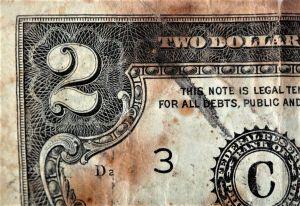Several Hundred XRP Accounts Linked to “Dirty” USD 400 Million
About USD 400 million worth of Ripple (XRP) has been found to be tied to illicit activity and several hundred XRP accounts are responsible for this, according to Elliptic, a London-based blockchain analytics startup.

“We began researching XRP more than a year ago and have already identified several hundred XRP accounts linked to illicit activity ranging from thefts to scams and the sale of stolen credit cards,” said Tom Robinson, Chief Scientist and Co-founder of Elliptic.
USD 400 million worth of XRP linked to illegal activity is less than 0.2% of total XRP transactions. The coin is in the third place by market capitalization, which now stands at c. USD 10.9 billion. The illicit amount found would, hence, make around 3.7% of its market capitalization.
Elliptic launched today the beta version of their transaction monitoring support for XRP, with full support expected in first week of December. Its purpose it to enable financial institutions and businesses to systematically screen XRP transactions and detect if any are tied to criminal activity or sanctioned entity.
Criminal use of crypto assets is evolving, Robinson says, and by exposing it, the financial institutions will gain “the confidence they need to engage with the crypto ecosystem.” XRP is getting increasingly popular among financial institutions and banks in the APAC (Asia-Pacific) region, and this type of approach may push its global adoption, the startup says.
At the time of writing (16:07 UTC), XRP trades at c. USD 0.25. It’s up 0.4% in a day, but down 7.4% in a week.
In September, the startup published a report which concluded that “the overall impact of bitcoin (BTC) and other cryptocurrencies on money laundering and other crimes is sparse in comparison to cash transactions.” Nonetheless, when it comes to the world’s most popular cryptocurrency, BTC, Elliptic said that “only” USD 829 million worth of it was spent on the dark web, which represents 0.5% of the network’s transactions. Among a number of relevant points stated in the report, Elliptic found that:
- MSBs (money services business) may be unclear about their role in preventing crime on blockchain, may not know how to properly implement vital AML (anti-money-laundering) processes, or may look the other way – any of which is a costly mistake;
- money laundering can be prevented with tools that match customer data with BTC transaction histories, making it easy for MSBs to identify high-risk customers, remain AML compliant, and avoid being associated to crypto money laundering, the report concludes.
__
Learn more: Share of Illegal Bitcoin Transactions Declined to Less Than 1%




